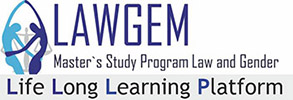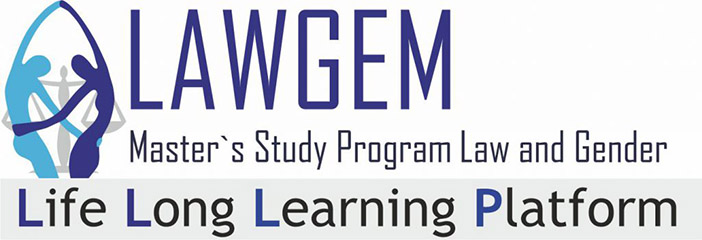Faculty of Law University of Belgrade in the cooperation with the OSCE Mission to Serbia organized the Spring School/Pilot Master – Law and Gender. This Spring School was based on the project LAWGEM and served as a kind of the pilot practicing of the future master`s study program Law and Gender. It covered all courses contained in this master`s study program curriculum, and the reading materials consisted to a great extent of the books published within the LAWGEM project. The School was organized in a hybrid form – in person at the Faculty of Law University of Belgrade and online, with 69 participants (students of undergraduate, master and PhD level), both from Serbia and other countries around the world (Albania, Belarus, Bosnia and Herzegovina, Brazil, China, Croatia, France, Germany, India, Iran, Italy, Montenegro, Russia and Vietnam). It is certain that participants of this School have gained valuable knowledge which will help them on their academic path and in their professional careers. On the other hand, the Spring School represented an excellent preparation of lectures and pedagogic experiences of the scholars from the University of Belgrade Faculty of Law for the future conducting the master’s study program Law and Gender.
The mandatory course on Gender Equality Legal Clinic aimed to introduce practical skills which will be implemented in the future Master program on Law and Gender. Professor Dr. Bojana Čučkovic, who is also a director of clinical education at the University of Belgrade Faculty of Law, explained the importance of implementing practical skills within legal education. Namely, legal clinic education will help students to use their theoretical knowledge to solve real-life cases and improve practical and analytical skills but have the opportunity to establish quality contacts with clients, to identify legal problems and to find a solution. This can also benefit to society in general, as it would engage universities and the community and sensitize students to pro bono work and work with vulnerable people. Professor Dr. Čučković represented current legal clinics that deal with gender equality from different perspectives such as anti-discrimination law legal clinic, legal clinic on combating human trafficking, refugee law legal clinic, and family law legal clinic. In the end, the Pprofessor explained that the legal clinic on gender equality will provide added value because of the intersectional perspective and the opportunity for students to draft summaries, and reports to international bodies, organize debates on different legal aspects of gender equality, and conduct analysis on international.
Gender Equality Legal Clinic

